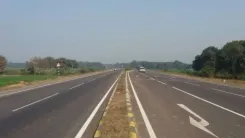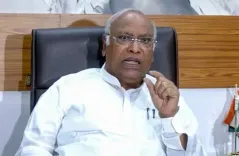What Are the Reactions to the Fuel Ban on Overage Vehicles in the National Capital?

Synopsis
Key Takeaways
- Delhi's fuel ban targets overage vehicles.
- Pollution levels in the capital are alarming.
- Mixed reactions from residents regarding the policy.
- Enforcement relies on technology and public cooperation.
- Critics call for consistent regulations across all vehicles.
New Delhi, July 1 (NationPress) The recent initiative by Delhi to impose a stringent fuel ban on end-of-life (EoL) vehicles — specifically, petrol vehicles exceeding 15 years and diesel vehicles surpassing 10 years — has elicited a spectrum of responses from the city's inhabitants.
While a significant number of residents have applauded this action as an essential measure to combat pollution, others have raised concerns regarding its rationale and consistency.
As part of the enforcement efforts, authorities have already confiscated two motorcycles categorized under this new regulation and have dispatched them for scrapping.
This enforcement action follows troubling findings from the Centre for Science and Environment (CSE), which reported in a November 2024 study that vehicular emissions account for a staggering 51 percent of Delhi's local pollution — the highest proportion of any pollution source.
In conversations with IANS, Delhi residents expressed varied views on this policy.
One local commented, "Given the alarming pollution levels in Delhi, this government measure is commendable for eliminating overage vehicles."
Another remarked, "Many people are suffering due to pollution. The government's decision is commendable as it aims to mitigate pollution in Delhi."
Supporting similar views, another resident stated, "The government has made a sound decision to address pollution in Delhi. Strict actions should be enforced against those continuing to operate their EoL vehicles."
Conversely, some individuals challenged the policy's criteria and uniformity.
One resident noted, "Laws should apply equally to everyone. The time limits differ — 15 years for some vehicles and 10 for others. There should be a consistent standard for all vehicles."
"Minimal progress can be made through this approach. The government should standardize the time limit to either 10 or 15 years. Pollution affects all vehicles equally. We do not support this policy," another resident added.
As enforcement teams persist in monitoring and addressing violations at 498 petrol pumps with the aid of Automatic Number Plate Recognition technology and police support, the success of the fuel ban will largely hinge on consistent enforcement and public collaboration in the forthcoming days.




